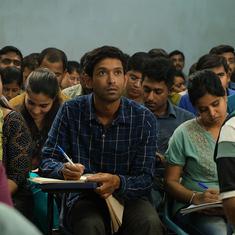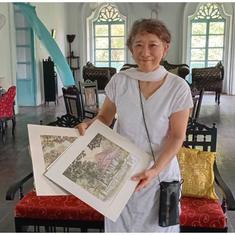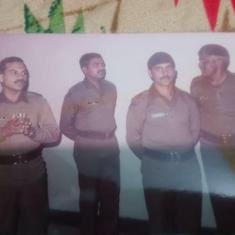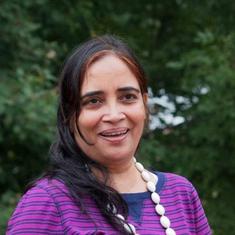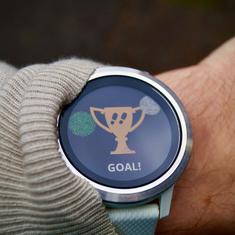“People like me, through the act of searching, communicated a desire for answers. That is, for content.”
I do not consider myself conservative, not by a long stretch. But if there’s one thing I’ve been a real prude about, it is Chat-GPT. I’ve not only never used it – never felt the desire to – but also abhor the idea of using it for non-essential purposes such as distilling online searches, writing email, or substituting it for speaking to a friend. Just the idea of speaking to a machine or having it create anything on my behalf is perplexing to me.
Among my strongest beliefs is that language is humankind’s final frontier – not just its effectiveness for communication, but its versatility to give structure to our dreams and memories, spell out our fears, conjure jokes and puns, and mould it in a way that creates communities. Think of the many, many languages we speak, the hieroglyphics that made complete sense to our ancestors, the shorthand that we use to make notes and is comprehensible to perhaps just us, or the secret language that we use with a lover, or a child, or a pet.
Through millions of years of evolution, humans have perfected language – we have constricted it to suit definite purposes and expanded it to encompass our universal feelings. When we speak, it’s not just our brain flexing its muscles but also our heart and gut that react to the rhythms and meaning of speech. Why else does our stomach drop when we read the news or our hearts soar when a baby babbles to us? Somehow, we have been able to make sense of all sounds and somehow all of them speak to us.
To let go of this, or specifically, to relinquish this power, moulded and perfected by innumerable social, political, and evolutionary moments, feels almost blasphemous. On top of this are my own reservations as a woman. Two generations ago, my grandmother was pulled out of school after her matriculation exams. There was no need for her to study more – it was time for marriage and children.
She died three years ago, while I was still working on my book and reading and writing for a living, and her other granddaughter was in a foreign country undertaking her post-doctoral research. These shifts in women’s liberation have been astounding, seismic even. And yet, we are nowhere near true emancipation – not in the least at the cultural and social level. So to log into Chat-GPT, feed it a prompt, and have it read and speak to me, think on my behalf, feels like a betrayal to my grandmother, a million other women like her across the world, who would have perhaps sacrificed anything to enjoy the freedoms that I do. It feels almost unfeminist.
The present and the future
In her latest book, Searches: Selfhood in the Digital Age, writer and journalist Vauhini Vara reimagines the “self” in the age of aggressive proliferation of corporate-owned technology and indeed, a future where there is a real possibility of humans becoming redundant, not in the sense that we’ll disappear, no, but that there will be no need for our humanness. Especially our cognitive and emotional abilities, leaving us plenty of time and opportunity to be lazy, unremarkable, and destructive.
Vara charts also personal arcs in a book that does not really aim to be a memoir. Her journey starts in the 1990s, where she and her friend would fire up the computer and log into a novel internet to chat with strangers on messaging boards. In a way, she comes of age with the internet – she notices its changing aesthetics, how it became more versatile with every click, and our almost instinctive need to “look up” something online. Her professional journey as a journalist also traces this arc. She studied the internet as a cub reporter for her school newspaper and later at the university, and while working with major publications, she reported on the enthusiastic reception of Facebook, Google, and Apple in their earliest days. She remembers the launch of the first iPhone, Mark Zuckerberg’s (now misleading) optimism of Facebook as an equalising platform, and more recently, Sam Altman “working actively” towards AI’s advancement while being fully aware of its inherently “unequalising” nature.
Read together, it gives an interesting picture of the total capture of human existence – while at first, there was excitement about connecting the world, now there’s univocal acceptance that the beast we have created has been out of control since birth. Therefore, instead of downplaying its harm or being oblivious to its malignant nature, the only way to keep up with it, as experts advise, is to also “actively” adapt ourselves to it. Here, too, Vara presents the two obvious ways in which we have begun to cope.
One, like Vara, we lean into the inevitable. She researches and writes about technology, uses Chat-GPT to see what it is all about, is plugged into Apple and Google software because it makes her life easier, and by her own admission, simply loves scrolling. Two, there’s Vara’s husband, writer Andrew Altschul, who did not have a smartphone till the end of 2023, is not on social media, just generally likes to stay off the grid, and prefers to observe people on the metro, unlike his wife, who would rather be on the phone. If Vara’s preoccupation with the internet feels excessive, it is also unimaginable to comprehend having a monastic attitude towards it.
While reading Searches, I considered my own relationship with the internet. I do not use Chat-GPT or any AI tools (consciously), but I am cripplingly reliant on Apple and Google to save my passwords, store my work on cloud storage, and have an eternal online self that I can access on any generation of a device from any part of the world. On the one hand, I do not use social media for more than an hour a day, I am sparsely available on my phone, I almost never check social media when I’m on vacation and yet, whenever I am on social media, it creates a deep sense of anguish that I wallow in for the better part of the day. So even though I have a mostly healthy relationship with my phone, I cannot say the same for social media, the insecurities of which also feed my offline hours.
Emotional intelligence vs artificial intelligence
This dual existence has become the reality for many of us. Through memories of her sister, Deepa, whom she lost to cancer very early in life, Vara examines the objective reality of social media and how it has shaped her own relationship with grief. She thinks of social media as an archive of memories – a very benevolent perspective – but in the age of AI, what is memory and how do we preserve it?
In the brilliant chapter “Resurrections,” Vara shows the visual memorabilia of the memories of her childhood, her mother’s childhood, and even her grandmother’s. While she had photos with her sister that confirm they indeed existed together, her mother and grandmother only have their own memories and no visual proof of it, as we understand it now. The AI-generated images of her mother and grandmother’s memories are ugly, devoid of any gaze (of the photographer or the subject), and even lack the passion or rigour that one might see in traditionally sanitised images such as diagrams or maps. And yet, the integration of AI and social media fattens us up with images that, though intriguing, fail to conjure any visceral reaction. Even the cutest puppy images do not inspire joy nor do the image of graves lined up in thousands horrify. Much like the language models, the image models, too, are “all signifier, stripped of significance, and any significance we perceive is a mirage.” For now, the machines simply cannot manufacture emotional depth, no matter how intelligent they might be.
The chapters are interspersed with Vara’s interactions with Chat-GPT. She allows it to read what she has written and asks for feedback. Interestingly, she says “please” and “thank you” to extract its services while the machine does not bother with any pleasantries. The coldness of such conversations aside, the machine gives a dull overview of what a chapter is about and upon Vara’s insistence, gives an account of the negatives and positives of it. Now, the question that arises from this exercise is – can editors be replaced? To cut costs and increase productivity, perhaps. But can they give impassioned comments on what they really loved or hated in a manuscript, be not so clinical while pointing out the negatives, convince a writer to reconsider their choices, or really inspire them to create to the best of their abilities? I doubt.
Vara’s book ends with the deeply emotional chapter “What Is It Like To Be Alive?” Interestingly, here, Vara writes nothing of her own. Instead, she gives us answers of a survey she conducted where participants recalled their earliest memories, their secret desires, what they are afraid of, their relationships with their parents, what their parents were like before they became parents, and the like – pretty common “facts” that we know of our dearest friends and if lucky, ourselves. Here, we have pages upon pages of anonymous confessions – people speaking freely of what it means to be them, their deepest hurts and most glorious joys. Vara’s final question asks what technology the participants envision to become “better humans”, many of them answer resolutely that any such ambition sounds destructive. Some were miffed at her for asking such an impersonal question. However, of those who do engage with the question, the general consensus is to understand each other better, be respectful of differences, end hunger and war, have more trees, find a way to achieve world peace.
These answers are rather rudimentary. Ask a five-year-old what they want and they’d also perhaps say the same thing. In the end, irrespective of the grand technological advancements we make, the desire remains for a free and equal society. At this juncture of human history, those who desire goodness outnumber by many millions those who desire infinite wealth or dictatorial powers. Without saying anything at all, Vara concludes with an essential truth: The machines have not corrupted us entirely; a little corner of our human heart is still held up by language, memories, and dreams. And that little corner is worth preserving.
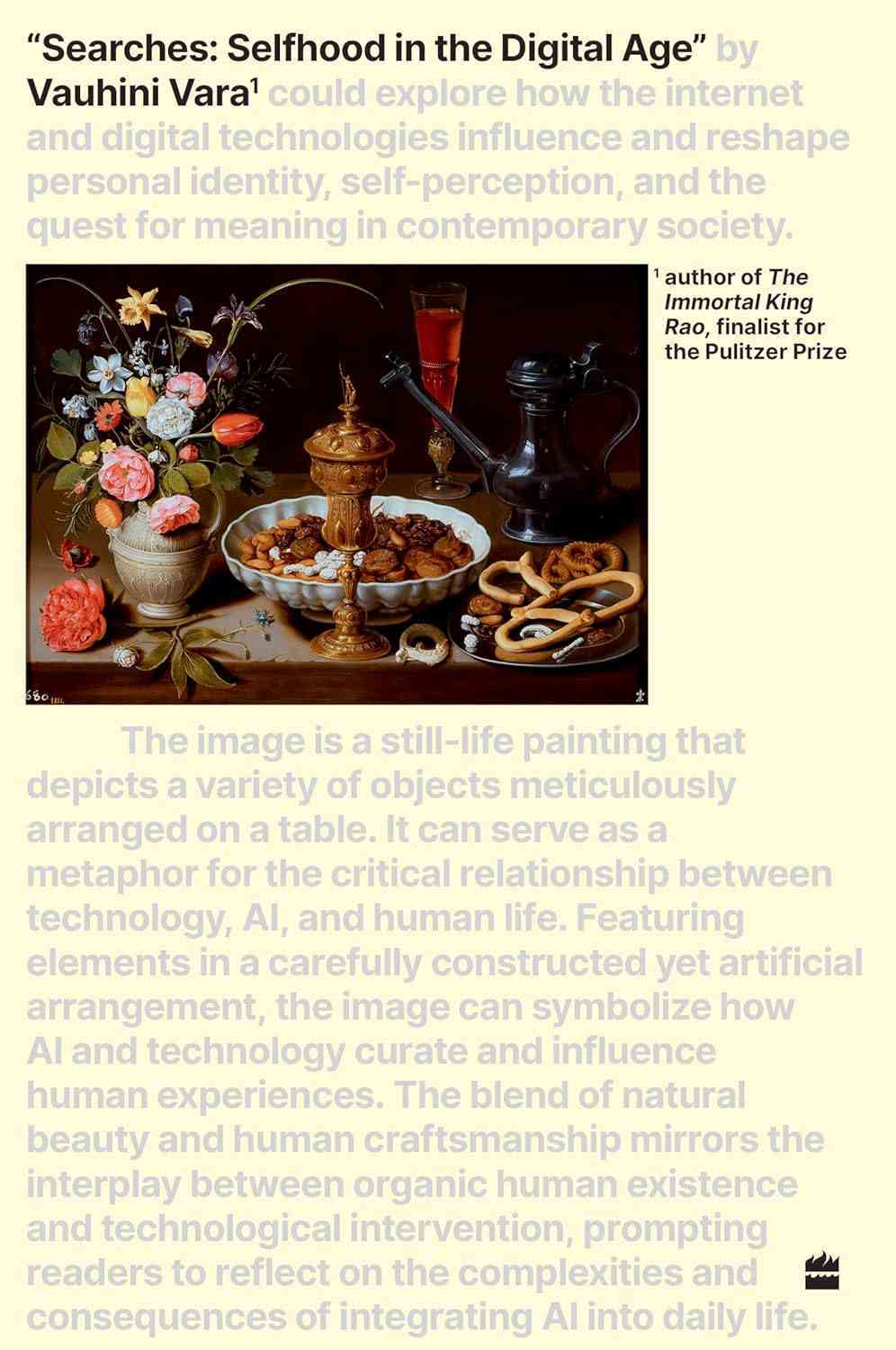
Searches: Selfhood in the Digital Age, Vauhini Vara, HarperCollins.

